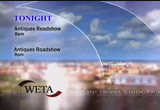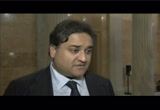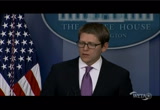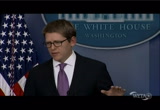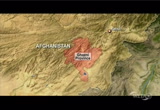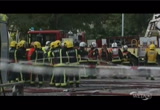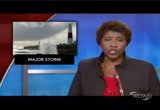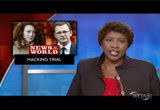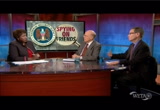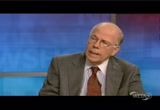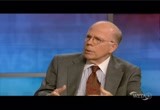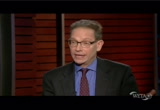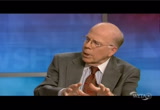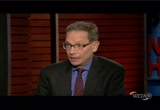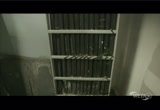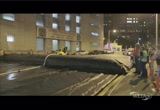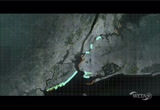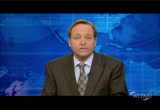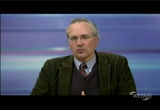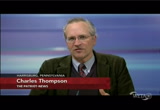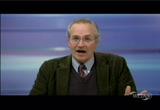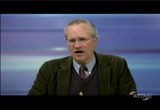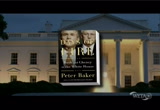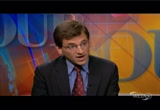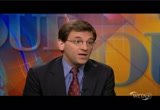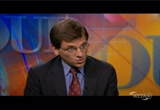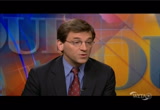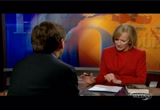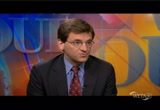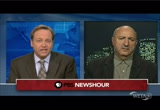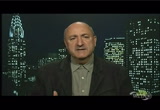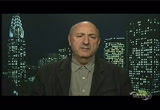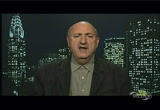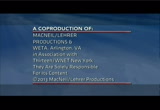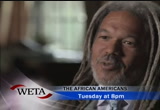tv PBS News Hour PBS October 28, 2013 7:00pm-8:00pm EDT
7:00 pm
captioning sponsored by macneil/lehrer productions >> ifill: the uproar over n.s.a. spying spread today after new reports detailed the extent of the agency's surveillance activity in germany and spain. good evening. i'm gwen ifill. judy woodruff is off. also ahead this monday, in detroit, the court battle over the city's bankruptcy brings michigan's governor to the stand. and lessons learned from hurricane sandy. miles o'brien reports on how new york city is preparing for the next superstorm. test one year later the people who keep this city running are
7:01 pm
scrambling to figure out how to keep dry as the storms and the sea level rises. >> ifill: those are just some of the stories we're covering on tonight's pbs newshour. >> major funding for the pbs newshour has been provided by: >> bnsf railway. >> united healthcare-- online at uhc.com. >> and by the alfred p. sloan foundation. supporting science, technology, and improved economic performance and financial literacy in the 21st century. >> and with the ongoing support of these institutions and foundations. and... >> this program was made possible by the corporation for public broadcasting. and by contributions to your pbs station from viewers like you. thank you.
7:02 pm
>> ifill: european governments lodged new complaints on both sides of the atlantic today over u.s. surveillance. they followed more disclosures linked to the national security agency. newshour correspondent kwame holman begins our coverage. >> in madrid the u.s. ambassador to spain james crossoes ignored shouted questions about how his meeting at the foreign ministry went. he had been summoned after the newspaper el mundo reported the nsa tracked more than 60 million phone calls in spain just from december 2012 to january 2013. meanwhile in washington members of the european parliament met with the house intelligence committee on u.s. surveillance. >> it's just about trust. for the european union to restore this trust to make sense of why the nsa surveillance was necessary, why it's so disproportionate. >> there have already been
7:03 pm
revelations that the nsa collected the phone call gait of french and german citizens and of ger pan chancellor angela merkel. over the weekend the german newspaper said merkel's phone was monitored as early as 2002. and another german paper said president obama was briefed about the effort in 2010, much earlier than previously reported. the nsa denied mr. obama was briefed that far back. while at the white house spokesman jay carney said the president recognizes the need for additional constraints on gathering and using intelligence. >> and we're also reviewing these programs because the president believes it's very important that even as they look to keep america and americans safe, that they do so in a way that reflects the sincere concerns about privacy that americans have and that our allies have. >> back in berlin germany's interior minister would not rule out expelling u.s.
7:04 pm
diplomats. >> already in july i said during my talks in washington that it would be absolutely unbearable for us if german law was broken on german ground. now it turns out that this was the case. >> reporter: which made it nearly certain that the fallout is far from over and that difficult talks lie ahead. to that end a delegation of u.s. lawmakers plans to journey to brussels soon. >> ifill: we'll have more on how intelligence-gathering is fraying relations with u.s. allies, right after the news summary. penn state university will pay nearly $60 million to 26 men over claims they were sexually abused as children. former assistant football coach jerry sandusky was convicted last year of abusing ten boys. they are among those settled with the university today. we'll have more on the payouts and what led to them later in the program. a federal judge in texas struck down a new state restriction on abortion clinics today, one day before it was scheduled to take effect.
7:05 pm
the rule requires doctors to have admitting privileges at a nearby hospital. opponents said that would force dozens of clinics to close. another provision-- banning abortions after 20 weeks-- will take effect tomorrow. the government's health insurance exchange web site is back up after an all-day outage sunday. it involved a critical data hub run by verizon. white house press secretary jay carney also acknowledged today that insurers are canceling thousands of existing policies, something the president promised would not happen. >> it's correct that substandard plans that don't provide minimum services that have a lot of fine print that leaves consumers in the lurch often because of annual caps or life time caps or, you know, carveouts for some preexisting conditions, those are no longer allowed. because the affordable care act is built on the premise that health care is not a privilege, it's a right and there should be minimum standards for the plans available to americans
7:06 pm
across the country. >> ifill: in some cases, patients will get better coverage at about the same cost. in others, they'll pay more. chemical weapons inspectors in syria have failed to reach two sites on their list because it's too dangerous. that means they've missed an early deadline under a u.n. mandate to destroy syria's chemical arsenal by mid-2014. the organization for the prohibition of chemical weapons said today its experts checked 21 of 23 designated sites. they're still hoping for access to the others. funerals were held across iraq today after the latest wave of attacks killed at least 66 people on sunday. well over half the victims were killed in shiite neighborhoods in baghdad. car bombs exploded over 30 minutes, targeting commercial areas. meanwhile, a roadside bomb killed 18 people in a lawless district of eastern afghanistan. most were women and children returning from a wedding. a hurricane-force storm battered britain and northern europe today, killing at least 13 people.
7:07 pm
we have a report on the damage in britain, from tom clarke of independent television news. >> after hours of rain the worst of the winds arrived on the south coast in the early hours of the morning. by dawn west-facing sea fronts were still factors. >> its agency was out checking the offenses but the winds were already moving in land. >> overnight this was one of the windiest places, with gusts up to 80 miles an hour being reported. but the cutthroat flooding didn't happen, -- >> but what did surprise meteorologists was how the storm managed to sustain powerful gusts as it tracked across the south and east of england. as well as a fad all gas main explosion, falling trees killed two other people. a teenage girl was crushed as she slept in her caravan
7:08 pm
in kent. another man killed when a tree fell on his car during rush hour in hartfordshare. everywhere else the damage was general and random. most buildings escaped unscathed except for those on-- under construction or not secured to the ground. with the most widespread impact was on people trying to get around monday morning. trees blocking major roads was predictable enough but with 100 plus trunks and branches on the rail network, train disruption was far worse than most travelers expected. the storm has now moved off into the north sea. but the conditions that created it persist. >> ifill: german >> ifill: germany was also hard hit, with widespread rail and air travel disruptions, and six deaths. ellis island reopened to the public today, almost a year to the day since hurricane sandy hit.
7:09 pm
water from the storm swamped the boilers and electrical systems of the island's museum that documents decades of immigrant arrivals. the site had no power for months after the storm. more than a million photographs and other artifacts remain in storage while renovations continue. pediatricians are urging parents to limit children's access to tweeting, texting, and other online activities to two hours a day. the american academy of pediatrics published its new policy today in its journal "pediatrics." the group noted that unrestricted screen time and communications have been linked to cyber-bullying, obesity, and sleeplessness. jury selection opened in london today in the first criminal trial triggered by a phone- hacking scandal. rebekah brooks and andy coulson are former editors of rupert murdoch's "news of the world" tabloid, now out of business. they allegedly plotted to hack the phones of celebrities, politicians, and crime victims, and illegally paid public officials for information. wall street's week started on a subdued note.
7:10 pm
the dow jones industrial average lost a point to close below 15,569. the nasdaq fell three points to close at 3940. still ahead on the newshour, how the uproar over u.s. spying is straining relations with europe; new york city prepares for the next mega-storm; michigan's governor takes the stand in detroit's bankruptcy trial; penn state settles with sandusky's abuse victims; a new book peers inside the power dynamics of the bush white house; and remembering a rock legend. >> ifill: friction among friends continued to grow today amid new revelations of the scope of u.s. surveillance in europe. left unresolved so far: what sort of spying is acceptable? here to tackle that are john mclaughlin, former c.i.a. deputy director and then acting director. he now teaches at the johns
7:11 pm
hopkins school of advanced international studies. and charles kupchan, a member of the national security council staff in the clinton years. he's now a professor at georgetown university and a senior fellow at the council on foreign relations. welcome to you both. from your point of view charles kupchan how damaging are these disclosures? >> the damage has increased over time. i think at the beginning there was a sense that obama could say this happens. friends spy on friends. there's nothing really out of the ode here. and i think the european response was okay, let's sit on our hands and not cause a big stir. but now day-by-day we get pore and more information. more phone calls that are tapped. including the phone of chancellor angela merkel. and what's happened now is there is enough outrage in europe among the public that the european leaders have to react. and i think part of it is merkel herself is angry. and she's saying this has
7:12 pm
gone too far. >> ifill: it's not just her, it's others as well. which begs the question why would the u.s. tap friendly phones. and why wouldn't they react this way? >> hmmmm, well, certainly you can expect them to react this way. once anything like this is revealed, there's an obligation, i think, felt by those on the receiving end to say what they're saying. so there is a little bit of indignation theatre going on here. now that said, why would we do this, if we had done it and we have to bear in mind we don't know the details of this. we don't know what was collected. we don't know whether it was content or just lists of calls and so forth. but we share a lot of interest with the europeans over the last couple of years. there have been numerous reports of terrorist attacks being planned in europe. europeans being involved in places like syria, as fighters and so forth. so in all likelihood, if we're doing this, what we're looking for is a body of information that the europeans themselve was want to have and that we would
7:13 pm
give them and do routinely give them about things that could happen in their country that would be injurious to their national interests. >> if that's true, mr. kupchan, why would anybody stop now no matter what the outrage is. and how much of this really is shared? >> i don't think that anybody is talking about stopping it. and john is right that when you troll through a lot of traffic, sometimes you pick up things. and our intelligence service will pick up the phone and call the german intelligence service and help them prevent something from happening that's in the interests of all. but i think the question is, is the scale and scope of the gathering necessary. are there ways to negotiate a code of conduct that would put certain limits on the gathering of intelligence. and we know those limits exist because for example there's something called five eyes. we have a gentleman's agreement with the british, the canadian, the new zealander, the australian society. among friends there's a limit. we won't spy on your
7:14 pm
government, you won't spy on us. >> ifill: is that the kind of deal other nations are trying to get who are not part of this group of five, who want-- is that what is on the table for snerx? >> i don't think that's on the table for negotiation but i believe it's out there as a request on the part of some countries. that we already have apart from the five eyes that charles talked about, we already have very robust, extensive intelligence exchange programs with nearly all of these countries. >> does this change that, though, or do they get greater leverage in order to get that kind of access? >> i don't think it's going to work that way i think what we'll see here is this will play out for a while and there is a great desire on the part of all these parties to get past it and figure out how do we get back to a situation where we're dealing with each other productively. >> what kind of information are we talking about here that we are on the lookout for, assuming we're not sweeping it all up. is it corporate communications we're interested in. >> no, no. >> it's not? >> no, what we're looking for here in europe, i would put it in maybe three
7:15 pm
categories. first because i mentioned earlier, certainly terrorism information. part of 9/11 was planned in europe. >> right. >> we have to keep that in mind. second, the way the internetworks, a lot of information flowing around the world probably passes through servers in europe. so much of the information we're looking for may have nothing to do with europe. this may be i will makeup something here. syria talking to iran, or russia or whatever. we may be looking for that and then notice third category, i would say, you know, our law is to fine foreign intelligence as information that helps the united states formulate an effective foreign and national security policy. we're looking for that. so we're looking for information that helps us -- >>. >> ifill: that's pretty broad though. >> of course it's broad. we're looking for information that help us understand how other countries think and how they plan to operate. and that can make our relationship with them much more affective and productive. >> ifill: is that what
7:16 pm
european nations are looking for as well? >> i think that european nations it are looking for some supervision and some limits. the nsa sucks in as much information as it does partly because it can. partly because of new information technologies, the internet, wireless, cell phones. and the europeans simply have a political culture that is more sensitive to privacy than in the united states. >> ifill: so they handle their intelligence differently than we would necessarily. >> well, they haven't made much more progress on these kinds of issues among themselves than they have with us. they don't have an eu-wide approach to intelligence. they have their individual member states but, for example, with us there has been a really tough conversation about air traffic passenger data, about financial data to track terrorism. we have said open up the books. they have said that's inconsistent with our priv is see laws. and they feel that starting with george w. bush and continuing under obama, the united states has simply got
7:17 pm
the balance wrong. too much invasion of privacy in the pursuit of security. >> when ask youed about whether they handle their information differently, i would say that no country in the world that i know of and certainly not even the european countries has the kind of really intrusive oversight that we have here. and i support that. nor does anyone have the sort of guarantees and protections against invasion of privacy that we have here. i mean many of these countries and there are exceptions among them aren't nearly as faithful to those ideas as we are. >> ifill: is isn't the only reason we are talking about this now is there seems to have been an invisible line, well, not just that it's been reported, but that we're talking about world leaders. dianne feinstein came out this afternoon and said this is something we should not be doing, which is spying or listening in on what world leaders and prime ministers are doing. is that the bridge too far here? >> i think when it started it was mostly political theatre. it was european-- .
7:18 pm
>> ifill: european reaction, you mean. >> yeah, they were saying our publics don't like this. they didn't know this was going on. we need to do something. now that merkel's phone has been tapped, i think she is furious. and so you have the political theeteder part, combining with the sense that i have been personally violated. and i think now the cat is out of the bag if you will. >> ifill: isn't the personal violation the key here when you're talking about prime ministers and presidents and heads of state. >> let's be year though. we don't know whether what was being done here was actually monster-- monitoring her conversation or collecting a list of her phone calls. and former secretary of state madeleine al bright commented that the french did this to her when she was u.n. ambassador. >> ifill: and she objected to it at the time. >> and countries, they do this. so we don't know precisely what the nsa was collecting on angela merkel. let's assume that there-- let's assume it was call lists. and let's assume that they saw that she was in touch with someone we were interested in, a leader in
7:19 pm
iran or in russia or somewhere, that maybe the other end of her call, that someone is interested in. and so it's important for us to specify here. we don't know whether the content of her calls-- . >> ifill: it doesn't sound like you think we should roll back on listening in on leaders phone call, that that is a line that should not -- >> that's a decision for the president and it sounds like he is thinking about it. but which say is this if we do that we will unilaterally restrain ourselves and others will not. >> ifill: is that something european nations want us to do, to unilaterally restrain ourselves at least on this level. >> yes. which probably disagree with john here. i think that when it comes to the leader of france or the leader of germany, we are not getting intelligence from-- if we are listening to their calls, that are, that's preventing bad things from happening. >> i don't disagree with that. >> where we're really making progress is sifting through calls, e-mails among extremists. and what the europeans are
7:20 pm
looking for is some kind of rule of the road that says among friends, and friends trust each other, these kinds of activities are unnecessary. >> rules of the the road, that's what everybody is looking for at this point. charles kupchan, thank you very much. and john mclaughlin. >> thank you. >> ifill: this week marks a year since superstorm sandy struck. more than 70 people were killed along the eastern seaboard. damage totaled more than $65 billion, and it pounded new jersey and new york city particularly hard. it also prompted a reexamination about how to prepare for future disasters. the newshour's science correspondent, miles o'brien, has the first of two reports for us, this on changes in new york. >> reporter: hurricane sandy brought mighty gothal to its knees. and one year later, the
7:21 pm
people who keep this city running are scrambling to figure out how to keep it dry as storms worsen and the sea level rises. the consolidated edison power substation that sits at the end of 14th street right next to the east river is about six feet above sea level. >> the water and electricity does not mix, obviously. >> reporter: most of the electricity for lower manhattan flows through these transformers and relays. as long as they're not underwater. for over 50 years the 11 foot high flood walls were just fine. until sandy's storm surge pushed 14 feet of water over the banks of the east river. >> the watt certificate coming over the top. >> reporter: the flashpoint was a circuit breaker that shorted out after the salt water rushed in. >> that breaker was at a lower elevation. and as the water started to rise, that breaker flashed over and then caused a
7:22 pm
subsequent failure at the transformer. and so then you saw this big flash of light. and there was a cascading failure because of the other relays. and then the station ended up shutting down. >> reporter: con ed's vice president of engineering and planning is determined to keep this station dry whenever the next megastorm hits. they're building about 180 aluminum doors to plug any holes in the substation's protective ring. >> so if the same event occurred, the same storm surge occurs there will be no customers out in manhattan. >> reporter: an beneath the sidewalks all across the city workers are installing waterproof equipment. >> everything even if you submerge underwater it is all submergeable equipment. if it is underwater it will still operate normally. >> reporter: and they're deploying more smart grid technology that can be monitored remotely and reduce power outages. >> what we'll do over the long-term is work with the
7:23 pm
latest climate signs so that we're further protected in the future. as more information comes in, our designs will be flexible that we can adjust, change, elevate, different 250i7s of equipment, higher wall. we'll have a different set of options that will be most cost-effective going forward. >> the electrical grid is just one piece of the vast infrastructure clobbered by megastorm sandiment on the west side of manhattan the phone call, verizon also got a climate change wake-up call. >> the impact of hurricane sandy to verizon was the largest impact to our line infrastructure in our 100 year history. >> reporter: chris is verizon's vice president of national operations. verizon world headquarters sits at 140 west street. about 250 yards from the hudson river. about five and a half feet above sea level. the ornate art deco lobby is
7:24 pm
normally gilded and gleaming. but the night sandy roared in, it was not such a pretty picture. >> we had water come in through the front and the rear doors of the building. and the wat gets into the elevator shifts, down the stairwells and begins to fill up the five subbasements of this building. >> reporter: in the basement is the vault where verizon keeps its crown jewels, telephone cables. on that night most of them copper. bad enenough, but below the vault is a pump system that delivers diesel fuel to the emergency generators on the 10th floor. but the pump was not waterproof. when it failed, the domino started falling. no pump, no power. no power and these crucial machines stop working. air compressors. verizon pumps air into its copper cables to cope watt frere seeping in. water, especially seawater, destroyed copper.
7:25 pm
>> the network was completely destroyed with one massive storm and one very destructive night. >> reporter: but there was literally and figurively one glimmer of light amid the unimaginable mess. fiber optic cables, long thin strands of glass that transmit voice and data with bursts of light are far more efficient than copper wires. and best of all, they're impervious to water. after sandy the company started immediately replacing the entire copper wire network in lower manhattan with fiber. the change over was supposed to take years. verizon did it in six months. in all, sandy cost verizon about $1 billion. and that crucial fuel pump? it's now in a watertight room with a submarine door. protecting new york's vulnerable and venerable subway system may be the biggest challenge of all. sandy caused about $5
7:26 pm
billion worth of harm to the nation's largest transit system. hardest hit, south ferry station at the southern tip of manhattan. the station was only three years old, built at a cost of $550 million. the day after sandy, it lay in ruins. joe leader is the man in charge of new york subways. >> the water level reached this high. >> reporter: more than $50 million gallons of seawater came rushing into south ferry filling the station almost to street level. >> you try and prevent it. you try and deter it, you know, and that's the best thing do. but can you really actually stop it? >> it was not for lack of trying. as sandy bother down on the city transit workers frantically stop to stem the tide with inflatable dams, sandbags and plywood. but there was no stopping the water. subway stations, rail yards and nine tunnels flooded. >> the water was coming from everywhere.
7:27 pm
there was no way of stopping it. you needed superman, i guess. >> mark is the general manager of the hugh cary brooklyn battery tunnel which normally carries cars and trucks between brooklyn an lower manhattan. >> we basically pulled everybody out of here. >> come on, we've got to go. >> reporter: here there was little they could do. 80 million gallons of seawater gushed in. the tunnel was practically full. >> work crews managed to clean it up. they removed the ceiling tiles and replaced enough lighting, cameras and communications gear to reopen the tunnel just two weeks after the storm. but there are years of work ahead to get things back to the presandy condition. >> ten months after sandy hit, engineers tested a water-filled emergency damn that might offer a layer of defense for the tunnel the next time. they're also considering this idea from west virginia university. an inflatable plug.
7:28 pm
in the meantime carpenters have he recognized this plywood wall at the low point where the water gushed in. but in the long run will plywood and inflatables an other small scale changes be enough to protect this metropolis. >> if you made this airtight and we did not allow the $66 million gallons of water that we pumped out to come into our system, where would that water be? it would be in the streets and if would be in the basements and on the first floors of all the buildings surrounding. it's got to be a really regional issue to decide how do you deal with something like that. >> in june new york mayor mike bloomberg released a $20 billion plan to make the city more resilient. it calls for several small barriers at strategic locations as well as plenty of new seawalls. but it does not support construction of massive storm surge barriers like they have built in places like the netherlands. building structures that expensive and extensive would surely require
7:29 pm
regional if not national planning and support. >> ifill: tomorrow mile reports from the netherlands, a world leader in adapting to rising sea levels and severe storms. >> ifill: now to detroit, for the latest in the struggle to right the teetering finances of michigan's largest city. a federal judge is hearing arguments over whether the city qualifies for bankruptcy protection. jeffrey brown gets the latest. >> brown: the day started with testimony from kevyn orr, the city's emergency manager. then for three hours, michigan governor rick snyder, who appointed orr, took the stand. it's the first time in modern state history a governor testified in court, and he faced a series of questions from the unions and retirees about whether the state and the city really did all they could do to avoid moving into bankruptcy. christy mcdonald of detroit public television was in the courtroom today, and joins me now.
7:30 pm
welcome to you. but first remind us briefly the issue in this trial is whether the city can go ahead with its bankruptcy process, right? >> right. it has to prove that it's insolvent and that's what they are seek for bankruptcy protection right now. but what the opposition wants to know is did detroit actually negotiate in good faith before they filed for bankruptcy. >> brown: all right, so today you heard from governor rick snyder, what were the lawyers opposing him arguing and what was his response? >> well, jeffrey, it was far from the typical day at bankruptcy court. as you he leaded to this really underscores the historic nature of what detroit is going through when you have a sitting governor taking the stand in bankruptcy court talking for three hours today about the decision-making process and how he actually got to the point when detroit filed for bankruptcy chapter 9 protection back in july. today the attorneys were trying to get the governor to talk a little bit about what he thinks should happen with the pensioners and with the crediters at this point.
7:31 pm
and should they be protected or should those be open to negotiation. they were talking to him about that. and they were also talking about the process that it took for them to declare bankruptcy if in fact that was his first choice, that that is what he really wanted to do all along. and the governor said under oath and he has said over the last few months that this was the last resort for detroit. it's the last thing that he wanted for the city. but when they finally got to the point where they couldn't make any deals, that's what they had to do. >> brown: and how hard were they pushing him in this very public spectacle. because really pensions has become one of the things at the heart of this. so how hard were the lawyers pushing the governor today? >> they pushed him but the governor had been in a deptition-- deposition before. so there weren't any real new aspects here. the governor knew what to expect. and he's very unflapable. any time that you have ever had to deal with the governor he stays on message. he stays on point. he's very calm so they didn't trip him up very much. he knew what to expect. and he didn't make it very easy for them. >> brown: now earlier today
7:32 pm
as we said the judge heard from emergency manager. fell us about his testimony. >> kevin ore said if detroit doesn't go into bankruptcy the city is going to fail. it will continue to have staggering debt and lose population. that this is the answer for the city right now and that they need that protection. >> brown: what is it like in court these days, especially on a day like today, you've got these two very high officials testifying. what is the atmosphere? >> very interesting. as i said a little bit earlier you had about 100 protestors outside federal court, chanting down with bankruptcy. trying to make their voices heard, that they should not be going through this process. and inside it's very quiet in federal court. they had the main courtroom where people, the public was allowed to come and sit and listen the testimony of the governor but it's interesting. there is also an overflow courtroom where the media members sit, we sit and can do our work on the computers at the same time and is also open to the public is so there are about 25 people in
7:33 pm
there. making some crowd noises i would have to say every time the governor said something that they didn't agree with. and again the people who are against this made the time to come down today and sit and listen to the testimony. they don't believe that they can solve detrit's debt on the backs of the retirees. >> brown: now while all this is happening are you in the midst of an election for a new mayor. how do these proceedings play into election that's the interesting side part they are going to allow lech a new mayor an both say they should not be in bankruptcy. both should not say there should not be an emergency manager running, one candidate says if january if he takes office will go to the governor with his own restructuring plan and ask to be put in place and for them to remove the emergency manager. so you have different political situation that is brewing over on this side and it's going to be very interesting to see how a new mayor works with the governor and the emergency manager because the old one right now says he feels that
7:34 pm
he's been pushed aside-- aside and has no part in what is going on. >> brown: explain that for all of us on the outside because it is confusion. so when a new mayor comes in, will he or she have the power to-- derail the bankruptcy but can do what? >> he doesn't have the power to derail the bankruptcy but he says he wants to-- either one of them said they want to have more input in the process of a restructuring the government and helping kevin ore who is the emergency manager do his job. now how much those two men will be able to work together and work with the governor, that remains to be seen. >> brown: you have just in the last minute here, have you seen attitudes shift very much in the months since the bankruptcy filing happened in terms of the energy, attitudes in the city generally? >> you know, i think people are watching and waiting to see what happens. because this is unchartered territory for everybody right now. there's been a lot of talk about what assets are on the table for the city. also a lot of talk about what this will actually mean in terms of when you get
7:35 pm
right down to it, the services for the city, for the people who live in detroit, whether the buses are going to be running on time, whether they have lights in their neighborhood. whether their trash is going to be picked up. so people who are not familiar with this process, and let's face t we're all not familiar with this kind of magnitude coming from this large of a city, it's going to be interesting to see how it plays out. and people are just now waiting for this designation if, indeed, the city will be cleared for bankruptcy protection. >> just very briefly when do we expect that to happen, any time soon? >> testimony should wrap up probably this week. we could get a decision from the judge sometime next week. well vae to see. >> brown: christie mcdonald of detroit public television, thanks so much. >> thanks, jeffrey. >> ifill: now we turn to the penn state settlement announced earlier today. it comes nearly two years after former assistant coach jerry sandusky was first charged and then later convicted of child sexual abuse.
7:36 pm
charles thompson, a reporter at the "patriot-news" in harrisburg, has been covering the story and joins me now. it come thanks for joining us so this settlement, nearly $60 million has been unfolding over time, i gather, not just all at once today? >> actually in the summer the board of trustees authorized a pot of about $60 million to pay off the claimants that they had, that the mediators working for the university had been able to reach agreements with. and that process, the process of getting to tentative agreements had been playing out for the better part of a year. >> ifill: we're talking about 26 people who settled. out of how many who had a claim and is that a lot of money in this kind of case? >> the 26 that they settled with here were out of an initial pool of 32 people who had raised claims of being abused by jerry sandusky as youths.
7:37 pm
three of those were found to be noncredible. and in the other cases, they just hadn't been able to reach a meeting of minds on what was fair. so those cases are proceeding at least two of them have active civil court cases going right now. after the 26 that have settled, 60 million dollars, you know, when you average that out across the 26, it does appear that penn state is paying a premium to get out from under these cases. but there are some reasons for that. >> ifill: and what are the reasons for the premiums? >> first of all, as a practical matter, i mean when we say that it appears that they're paying a premium, that's based on some analysis that we've done as a paper comparing this settlement with other large 25 or more claimant sexual abuse case. and most of those are in the realm of the roman catholic
7:38 pm
church scandals. so if you use those, and i think there's some, you know, it's not completely apples to apples but on the other hand that's an institutional entities that's trying to get out from under n many cases, multiple claims of abuse. penn state's an institution that's trying to get out from multiple claims of abuse. so there is some relevance there. in the church cases, i think the largest of those large group settlements came in at about $825,000 per claimant. penn state's is going to come out to about 1.4 million on average after attorneys fees are taken out. >> now what -- >> and the reasons, the reasons for that are that the churches often were threatening to petition for bankruptcy or had, in fact, petitioned for bankruptcy. penn state is rather well-heeled. many of the church claimants are not represented by
7:39 pm
attorneys, individually, in the penn state case every claimant had an attorney. and finally, you know, penn state is very adamant about trying to sort of reclaim it's good name in this process. and make this, do what they can to sort of help these victims emerge from this on the other side with, you know, a feeling like penn state has tried to do right by them. >> you say that penn state is rather well-heeled. where is this money going to come from? >> penn state hopes that eventually the money will come from insurance coverages that it has bought and paid for over the years. but as a practical matter, some of the insurers are pushing back against that notion. they want nothing to do with covering for jerry sandusky's actions. so immediately penn state's paying the settlements out of pocket. and they are drawing that money from money that the university gets in repayment
7:40 pm
of loans that it has made over time to, you know, the athletic department, for example, to finance expansions to beaver stadium or loans to the medical school in harvey-- hershey. they have a lot of pockets of money that they can draw the money from. >> ifill: today was other $60 million shoe that dropped. we'll see what happens next. charley thompson of the patriot news in harrison, thank you so much. >> sure thing. >> ifill: now, a look at the complicated partnership between president george w. bush and his vice president, a relationship that shaped more than a decade's worth of war and politics. that's the focus of a new book, "days of fire: bush and cheney in the white house," by peter baker, chief white house correspondent for the "new york times." judy woodruff talked to him recently. >> woodruff: peter baker,
7:41 pm
thank you for joining us. >> thanks for having me. >> woodruff: an exhaustively reported book, a wonderful read, congratulation. >> thank you, appreciate that. >> woodruff: so you write that vice president cheney was not the pub et mast-- puppet master, president bush was not the pawn. fanned that wasn't their relationship, than what was it? >> it was much more complicated than that. i think we oversimplified what was a rather unique partnership. vice president cheney was by all estimates the most influential vice president, no question about that. he had a mastery of washington, mastery of national security, issues that were not familiar at that time to the new president. but at the same time this, you know, george w. bush was not a shrinking violet-- violet. people described rooms when they were making decisions he was the one running the meeting. vice president cheney actually stayed quiet, he didn't actually offer his opinion in many meetings but where his power came from is when every other advisor left the room, cheney stayed behind. and what advice he gave to the president obviously people don't know. but it was, a situation
7:42 pm
where a number of times you could find president bush pushback even in the early days. >> woodruff: and you do write though in the first term in particular the vice president very influential in the president. but i want to specifically about the iraq war. >> right. >> woodruff: how much of that was the president and how much of that was the vice president? would it have happened if it hadn't been for the vice president. >> right. >> woodruff: and the secretary within that's a great question. obviously colin powell was skeptical. condi rice was following the president's lead. would it have happened without vice president cheney, very likely. i mean the truth is i think when vice president cheney was pushing, and de push on iraq. he was pushing on an open door. at that point george w. bush was focused on iraq just like his vice president. in fact, he actually was going as far as vice president cheney wanted to. in july of 2002, 7, 8 months before the actual invasion began, cheney rumsfeld want and said you need to attack iraq now because there is a chemical weapons a facility in northern iraq and bush said no. so there were moments where
7:43 pm
bush resisted the train and said we are going to do it my way. >> woodruff: and yet there were moments when president bush was going around the world making sure everybody was comfortable long after the vice president was absolutely certain this was the right thing. >> yes, yes. i do think that cheney's certitude, his un-- unflinching we have to do there, view of this, certainly encouraged those instincts within bush. and there is no question about that. >> woodruff: what, why did president bush grow to be less dependent on the vice president? >> right, the evolution of their relationship is really fascinating. it's really almost shakespeare'sian. on the day the war starts march 2003, he has been given intelligence about where saddam hussein might be and meets with his advisor, do we go right away or not. and they came out all except for cheney, just the two of them, they come out of the office and bush says go. by its second term, it is no longer quite the same thing. he's no longer relying on cheney the same way, as iraq goes bad, the relationship begins to move apart. cheney remains focused on his view of protecting
7:44 pm
america as he sees it with firm, sometimes even harsh policies. and bush begins to turn more towards diplomacy, repairing relations with the allies. trying different ways to shape his legacy. >> woodruff: and so was it a matter of facts on the ground not working out or was it, was there something, the chemistry in their relationship, do you fell you got to the bottom of that? >> i don't think we ever really get to the bottom. it's like a marriage. you know, defining the relationship between any two people is hard outside of those two people particularly because so much of it happened on one on one lunches they had every week, no aides were inside, no record kept. but i do think as condi rice said, the first term was about breaking china. after 9/11 they felt they had to do things that were very striking to save the country. but by the second term, as she said t was time to try to build something. and her vow was the vice president wanted to keep breaking joina. >> woodruff: how seriously did the president think of replacing dick cheney as his vice president.
7:45 pm
>> well, the first-- dick chyanny offered to drop off the ticket thinking maybe it would be a political boon to the president. to have somebody else there. he recognized his dark reputation. the first two times he said he offered it to the president he says president bush didn't really pay attention to it. didn't really react. so he want back a third time. and this time president bush said he did consider it. several weeks he said. even came up with a possible replacement, the senator from tennessee. in the end, in what he said about why he was thinking about it was interesting, he says it would show people who was really in charge. which suggests how much that had gotten under his skin by that point. >> why didn't he go ahead and do it. >> i think he decided it was in modern times becomes a sign of weakness. shows the first decision you made now you question. and that's not his style. >> was it, you wrote a couple other things. you said in the second term chaney seemed drained politically and physically. quote somebody saying he was a spent force which makes one wonder what if something had happened and dick cheney
7:46 pm
had to step in as president he was fall asleep you bright in the oval office. >> he now has a book about his health issues am he with know how severe those issues really were. and i never heard anybody talking about anything with regard to placing him or anything like that. it was affecting him these last couple of years. he had heard a tax several major surgeries. his schedulers started trying to make it easier, quicker and more concise. so looking back peter baker it's impossible to talk bay legacy so soon after this presidency ended but if you had to, what would you say it is? >> well, i mean, i think obviously iraq is going to be the central issue. i think what president bush would like to say is he protected the country and vice president chaney would like to say that as well. and they did get through the rest of their term without a major tack in america,
7:47 pm
something they will always be able to talk about. but iraq hovers over everything. all the other things he wanted to do medicare part d which he expanded, coverage of drugs. aids program,. all these things might have been the pieces of a very shallow legacy that iraq overshadows in so many ways. >> peter baker, the book is days of fire. brush an cheney in the white house. thank you very much. >> thank you, appreciate it. >> ifill: we close with a look back at the life of singer- songwriter lou reed, who died yesterday of liver disease. reed's music explored dark, often unsettling themes, including social alienation, addiction, and sexuality. he's credited with influencing generations of other musicians, including david bowie, patti smith, and nirvana. this is lou reed in 1983, performing what turned out to be his only commercial success, "walk on the wild side."
7:48 pm
>> . ♪ ♪ ♪ went down to the-- ♪ ♪ take a walk on the wild side ♪ ♪ hey girl ♪ take a walk on the wild side ♪ ♪ little joey never once gave it away ♪ ♪ they have to pay and pay ♪ a hustle here and a hustle there ♪ ♪ the place where ♪ they take a walk on the wild side ♪ ♪ baby ♪ you take a walk on the wild side ♪ ♪ jackie ♪ thought she for a day
7:49 pm
♪ then you know that she had ♪ ♪ a little valium would have helped that pass ♪ snot baby, take a walk on the wild side ♪ ♪ take a walk on the wild side ♪ ♪ and the coloured girls go ♪ snot da do, do, do ♪ do, do, do, do ♪ ♪. >> ifill: now more on lou reed's music and legacy. >> brown: it began with the band the velvet underground in his collaborations with artist andy warhol and moved into decades of solo, often highly spermal work. author and music critic anthony decurtis of "rolling stone" magazine is here to -- here to help fill in the picture. thank you for joining us. take us back to the early years to explain how a man who really never had enormous commercial success as a pop or rock star learned the lessoned considered so influential. what de bring to the muss snick. >> well, it was interesting, you know, around the time of the first velvet underground
7:50 pm
album called the velvet underground and nikko which was, you know, around 1966, '67, you know there was the flower power, and psychodelia and you know, all of this kind of utopian thinking. whereas the velvet underground really went underground. there was a sense in which they were documenting the kind of new york demimode of sexual adventurism and drug use and one of the classic songs in that period of the velvet underground was called heroin. another was called i'm waiting for my man about going up to harlem to score drugs. so theres with a sense in which they were putting a vision on record that was maybe the kind of thing you would read about in a william bureaus novel or nelson augur novel. you know, there was a sense in which that was lou reed's project. he saw himself on literary terms as well as muss eck. >> brown: you mentioned literary terms. >> that is what he wanted to portray. >> brown: you mentioned literary terms because one
7:51 pm
important influential for him was not musical but literary was the poet with the dellmore schwartz. >> that's exactly right. he studied with him at syracuse university. and i think from dellmore schwartz he learned a kind emotionality, really. and a willingness to take risks. you know, there is a great dellmore schwartz collection called in dreams begin responsibilities. and i think you know lou reed took that seriously and chose his own vision for himself as an artist. there would be no boundaries. i think that was his idea. >> brown: so how did his work, his ideas, his music spread out? how did it influence what happened to rock 'n' roll. >> well, there is a very famous quote by musician and producer named brian eno without once said well, only $30,000 people bought the first vel net-- velvet underground about every one of those people formed a band that gets at the impact that the velvet underground had. there was a sense that
7:52 pm
immediately iggy pop and david bowie, you know, a little bit later patti smith and television and talking heads, a little later than that you -- and r.e.m.. a little later than that pearl jam and nirvana and down to the current day bands like arcade fire and the national and grizzly bear, all oat a debt to lou reed. the velvet underground was the invention of beyond ground rock and alternative rock and any band that didn't set out immediately to just reproduce whatever was on the top 40 owes a debt to lou reed. >> brown: we just have a minute but i want to ask you, as the decades went on he continued it to work, with a lot of experimental work which i know divided listeners an sometimes critics like yourself. he also sort of developed into a kind of elder statesman role, in a sense of rock 'n' roll. >> very true. i mean i think he saw himself that way. you know, somebody earlier today was talking about whether or not somebody asked me whether or not he felt, i mean i think lou reed would have loved to have hit records.
7:53 pm
he wasn't better than that. but he wanted to make music on his own terms. and all of those experiments and the controversies, disappointments, all of that i think he saw as part of the game. and he took his own work. he had no doubt about his quality and its lasting significance. and that's how he carried himself. and that's the way he went not studio and went on stage to prevent a vision that he felt at that moment regardless of what anybody else thought about it, and that is the kind of inspiration that he gave to other bands. >> brown: all right, anthony decurtis on the life and work of lou reed, thanks so much. >> thank you. >> ifill: again, the major developments of the day. reports of u.s. surveillance efforts triggered new complaints in spain, and european lawmakers visited washington to deliver their objections in person. and penn state agreed to pay nearly $60 million to 26 men who
7:54 pm
said a one-time football coach sexually abused them as children. online, when a phone call just won't do. why you should always get your advice from a social security advisor in person. that's on making sense. and it only took 36 years, but now you can watch the "star wars" blooper reel that just surfaced on the internet. that's on our rundown. all that and more is on our web site, newshour.pbs.org. and that's the newshour for tonight. on tuesday we'll look at the first of two days of hearings on capitol hill with obama administration officials in charge of the rollout of healthcare.gov. i'm gwen ifill. we'll see you online and again here tomorrow evening. for all of us here at the pbs newshour, thank you, and good night. >> major funding for the pbs newshour has been provided by:
7:55 pm
moving our economy for 160 years. bnsf, the engine that connects us. >> united healthcare-- online at uhc.com. >> supported by the john d. and catherine t. macarthur foundation. committed to building a more just, verdant and peaceful world. more information at macfound.org. >> and with the ongoing support of these institutions and foundations. and... >> this program was made possible by the corporation for public broadcasting. and by contributions to your pbs station from viewers like you. thank you.
7:56 pm
592 Views
1 Favorite
IN COLLECTIONS
WETA (PBS) Television Archive
Television Archive  Television Archive News Search Service
Television Archive News Search Service 
Uploaded by TV Archive on

 Live Music Archive
Live Music Archive Librivox Free Audio
Librivox Free Audio Metropolitan Museum
Metropolitan Museum Cleveland Museum of Art
Cleveland Museum of Art Internet Arcade
Internet Arcade Console Living Room
Console Living Room Books to Borrow
Books to Borrow Open Library
Open Library TV News
TV News Understanding 9/11
Understanding 9/11